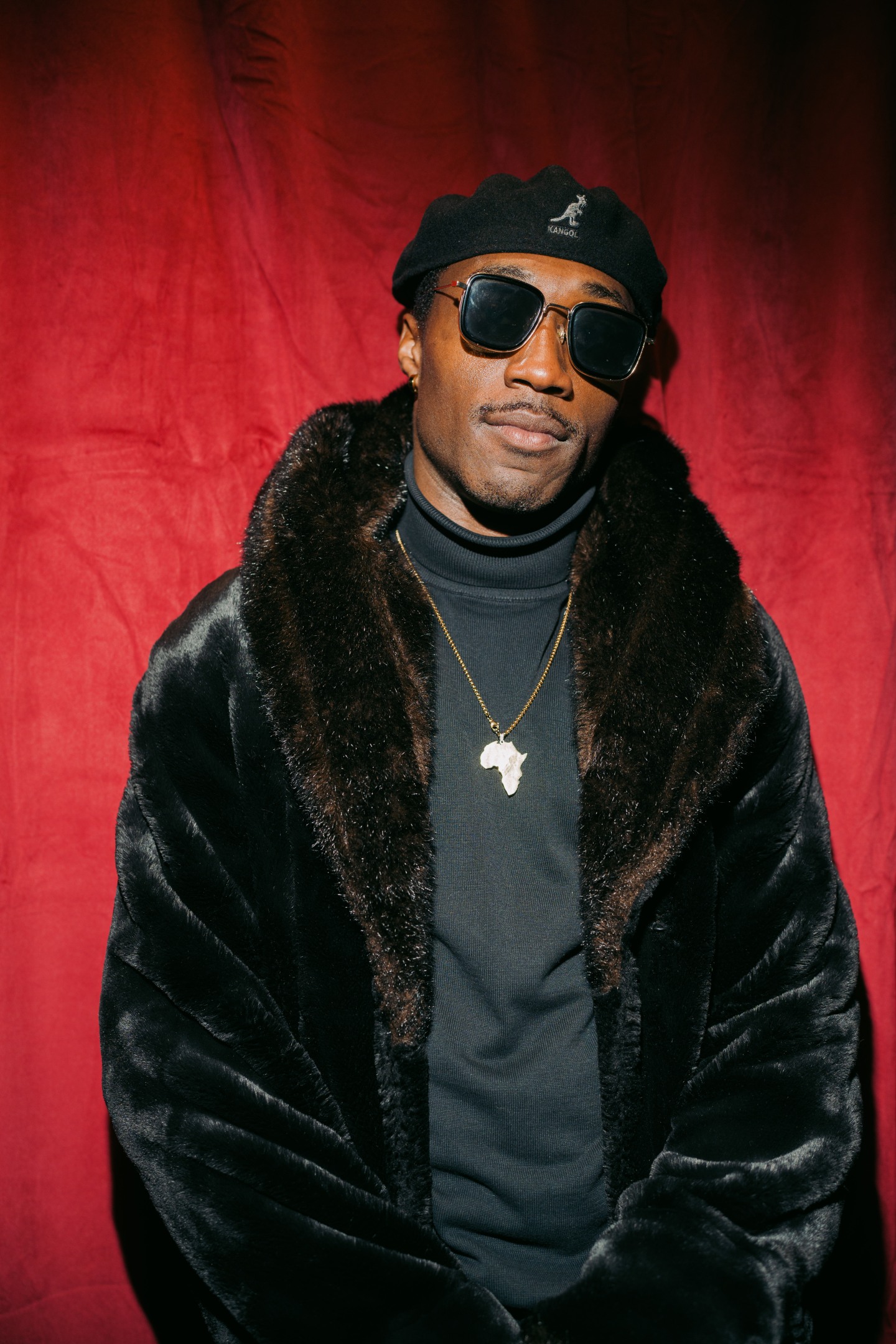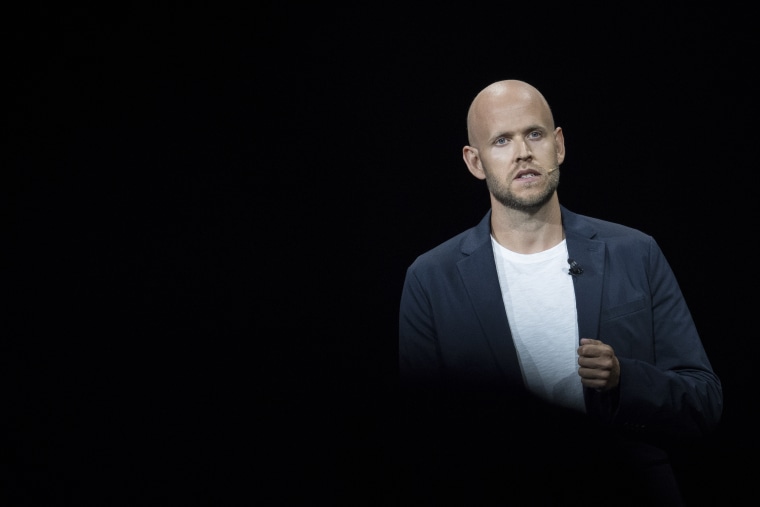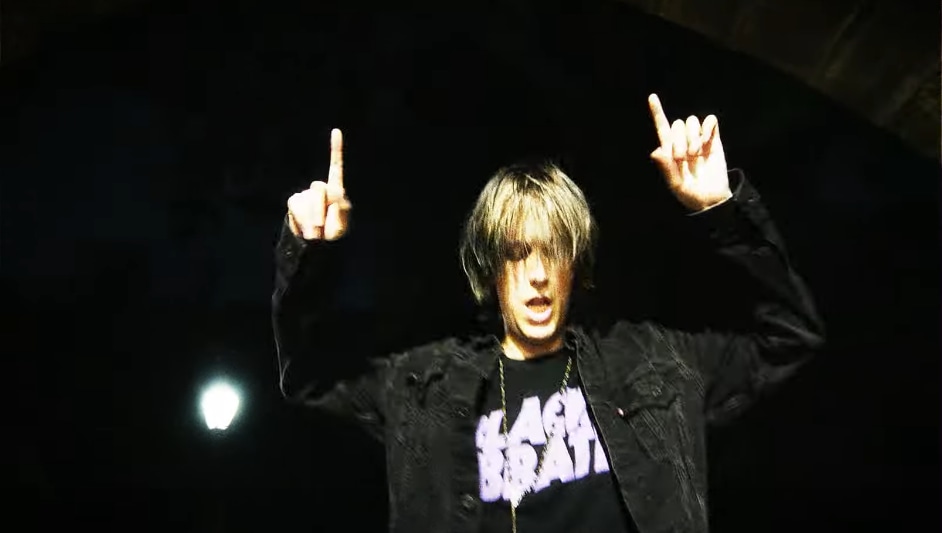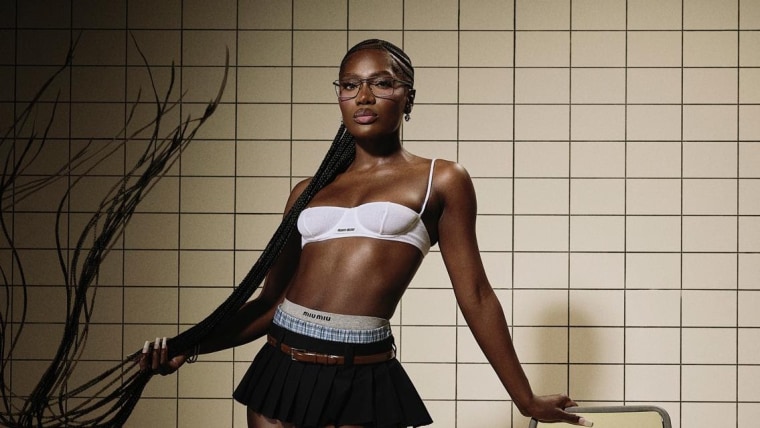Photo by Andrew Thomas
The logline for Daddy’s (yes, that’s his real, legal name) debut DIY feature A Nightmare on Malcolm X Boulevard isn’t coy about its intentions. The horror comedy tells the story of a struggling Black comedian in the 1980s who marries his white girlfriend, moves into a Bedford-Stuyvesent brownstone haunted by the spirits of slaves that her ancestors owned, and discovers on the side that he can’t make Black people laugh. “There’s so many ways that you can say that shorter,” the New York City-based comedian says over a recent video call, grinning. “But I love packing it into one big thing.”
Daddy’s comedy merges institutions both real and fictional. It takes a Spike Lee’s character from the early ‘90s, Aaron McGruder’s satire, and larger-than-life Black empowerment personalities like Dr. Umar, and combines them to reflect something urgent about the modern cultural moment. On his TikTok page, where Daddy shares biting political commentary and parody songs like “You a Coon,” he’s amassed just over 202K followers. He hopes that momentum will translate I.R.L. with Nightmare — for which he’s raised $103K through Kickstarter and private investments.
In one of Daddy’s videos promoting the Kickstarter, he dials the Umar-cribbing persona up to 11. Calling out Hollywood’s failure to fund Black-helmed movies, he asks potential donors to set aside some of the money they might spend on white women and donate to his film. The joke aside, it gestures to a wider truth about the industry. At a time when it feels like Hollywood is in need of original IP more than ever, Daddy says that the traditional filmmaking avenues have become increasingly opaque. And his scrappy efforts have paid off as he’s gathered a cast that includes Ilana Glazer (Broad City) and fellow rising N.Y.C. comedian Marie Faustin.
But there’s still a way to go: to fully fund the movie, Daddy says he’ll need $250,000. Last week, I caught up with the comedian to chat about the movie, the star-studded cast he’s put together, and why he wants to prove that you can make a movie funded by “Black TikTok.”
Tell me about the movie. How did this story come about?
I’ve been working on another movie for a while, Supernigga, which is blaxploitation, superhero, romantic comedy. That’s been like a five-year project and the industry moves so slow. Because of the state of the economy, people are taking less risks, especially with Black movies that are crazy and trying to do something that’s never been done before. I got to a point this year where I was like, I’m tired of waiting next year, next year, next year, saying I’m gonna make my first movie. I want to make something now that I can get the money [and] get the people for. That’s where this movie came together.
I wrote the first draft of the movie in February and I was like, OK, haunted house, Black guy. I know I gotta do something about a Black guy dating a white girl cause I was just like, that’s funny. And then, something with, how would the ancestors feel about that? Hilarious. I was gonna do the story [about] a house in the suburbs or down south, but then I started reading about how Brooklyn was like the slavery capital of New York. So I was like, OK, let’s talk about this. Let’s set it in Bed-Stuy.
You’ve compared the movie to Get Out, The Shining, and Scary Movie. How have these films influenced your project?
I really want to make what is missing in Black horror, which is twisted, fucked up, crazy horror. It’s cool seeing Jordan Peele and Ryan Coogler’s careers pop off. But at the same time, we don’t have our Ari Asters, our Wes Cravens. Get Out was great, Sinners is a masterpiece, but we’re still at the beginning. Let’s go further.
You have some big names like Ilana Glazer already lined up for the film. How did those conversations happen?
Ilana is someone who has been a mentor, a friend, a fellow comedian just over the last decade. Two years ago, we’re at a comedy show and we start talking. Ilana had heard about the Supernigga film because Marie Faustin, who’s in this movie, is the star. From there, Ilana gave me her number. [She] watched the Supernigga film and started becoming a mentor and an advisor.
What has the experience been like crowdfunding for this movie?
Crowdfunding is something I’ve always believed in because as an independent artist, who can you rely on more than your audience? I started crowdfunding in 2018. I raised $10,000 for a film. I did the Supernigga short film where we raised $36,000 and our goal was $30,000. All these projects have been supported just from literally giving my community content, “OK, this is what I’m trying to do, this is something that the industry wouldn’t necessarily do.”
The week that we announced the Kickstarter, there was already Hollywood executives emailing me. I have meetings with people I’ve always dreamed of meeting. Coming up just from sharing this idea on TikTok and on Instagram and making memes, which, you know, I feel like that’s how we should be making movies. We’re naturally connecting with the Black community to the comedy community to [the] general TikTok world and building an audience for a movie.
What would you like to see change in Hollywood regarding getting more interesting, original IP from filmmakers like you?
People got to take more risks and make smaller projects. When I first wrote [Supernigga] my mentality was, “I want to make a movie where the superhero genre is the backdrop, and we’re really seeing the Lois Lane and Clark Kent story from Lois Lane,” so it’s really grounded. It’s really a $1 million or less movie, but when the industry started catching wind of it cause the Kickstarter for that movie went viral, I started getting all these meetings and everyone’s like, “You gotta make it for $10 million you gotta make it for $20 million.” The question for me was, “Why do you believe that this movie needs to be 10 to $20 million?” It’s a small story. By making your investments smaller, we can take a bigger risk, but [studios] don’t think like that.
I’m looking at it like this: I’m trying to make the first movie funded by Black TikTok or Black Twitter, [the] kind of stuff where it’s like, oh, the people can actually make this happen. If the studios see that, [we can make them think] there’s a real audience for this that’s already making this kind of stuff happen, so let’s get involved, too.




